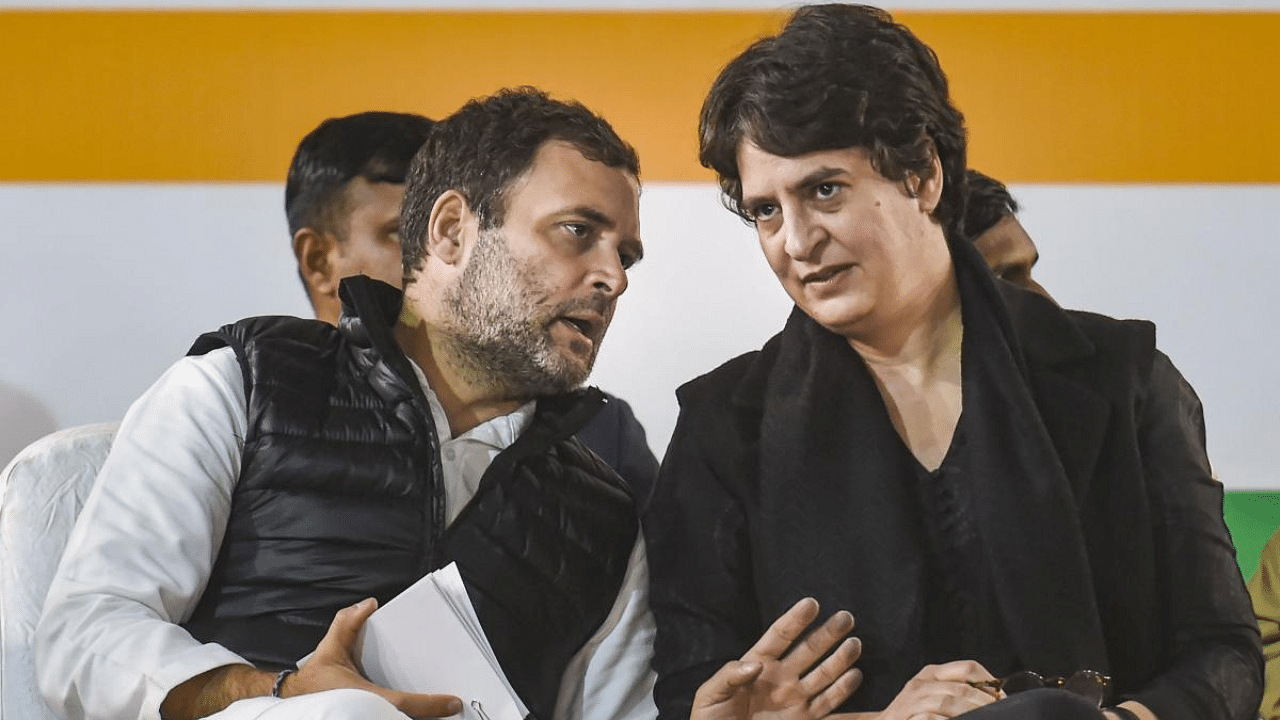
The ongoing West Bengal Assembly elections 2021 have seen the most high-profile battles this political season. On the one hand, Chief Minister Mamata Banerjee-led Trinamool Congress (TMC) is looking to counter the anti-incumbency wave and come back to power for a third consecutive time. On the other hand, BJP is trying to grab power in a state that has to date rebuffed all its attempts.
The saffron party is calling in the big guns with Prime Minister Narendra Modi, Union Home Minister Amit Shah, and other big-shot BJP leaders like Uttar Pradesh Chief Minister Yogi Adityanath and BJP chief JP Nadda, among others, relentlessly firing salvos at Bengal's Didi.
Amid this battle is Congress, not as high and mighty as the other two, but one that can hold its own in a few pockets. Congress, an erstwhile powerhouse in Bengal, CPI(M) and Abbas Siddique-led new political party Indian Secular Front (ISF), are fighting from a front named 'Sanjukta Morcha'. But Congress, or rather its top leaders Rahul Gandhi and Priyanka Gandhi have been conspicuously absent from the election arena in the state.
Given that both Rahul and Priyanka have campaigned heavily in other states, their absence from Bengal is curious. In Kerala, where the Congress-led United Democratic Front (UDF) is in a direct battle with the Left Democratic Front (LDF), the top leaders are seen frequently campaigning. Rahul has also visited Tamil Nadu multiple times, where the grand old party's alliance with M K Stalin's DMK gives it a strong chance to dethrone the AIADMK-BJP government.
In Assam, Rahul has canvassed extensively for the candidates. The protests against Citizenship Amendment Act will be the main weapon for Congress, with Badruddin Ajmal's All India United Democratic Front as its ally, against the ruling BJP.
In the 2016 Bengal Assembly election, Congress fought along with the Left Front and bagged 44 seats, thus becoming the largest Opposition party. Has the scenario changed so drastically in the last 5 years that Rahul and Priyanka ignored Bengal in this election so far?
Evidently so. Congress's powers have dwindled, and it now mainly relies on the regional parties to challenge BJP and its allies in the state elections, as was seen in the Bihar Assembly election last year. The narrative of the poll fight in the state has revolved around the clash of TMC and BJP and many are afraid that Congress may not have place this time. Even though Congress has the direct support of CPI(M) and ISF, it will be difficult for Congress to break this binary.
According to a report by Outlook, Rahul Gandhi has decided to campaign in Bengal after the end of the voting process in Tamil Nadu, Kerala and Assam. He will apparently conduct rallies in pockets where the Congress has the maximum chance of winning, like in Malda, Murshidabad, Alipurduar, Darjeeling, which go to polls in the last three phases.
A Congress leader told the publication, "In Kerala, we are fighting against the Left while in Bengal the Left Front is our main ally. Simultaneously campaigning in the two states would have thrown up its own set of challenges for Rahul and so it was felt that our state leaders and some central observers should run the campaign for the first three-four phases and then Rahul can devote time after he is free from the engagements in Kerala and Assam, where again we are the main challenger to the BJP and the Left parties have a limited role in our grand alliance,” says a Congress leader.
Another reason behind the absence of the Gandhis can be their apparent disinterest to go all out against Mamata Banerjee. Recently, Mamata wrote a letter to all the top anti-BJP political leaders of India, urging them to stand unitedly to thwart the saffron party. Leaders like Uddhav Thackeray, M K Stalin and Hemant Soren among others have expressed their support for Didi in this Assembly election and over the years, she has gradually emerged as one of the primary faces to counter Modi and Shah. Congress is seemingly wary of enraging her.
Come May 2, Bengal's fate will be decided. It will also decide the future course of Congress, and indicate whether the party that boasts a rich history can turn around its present situation.